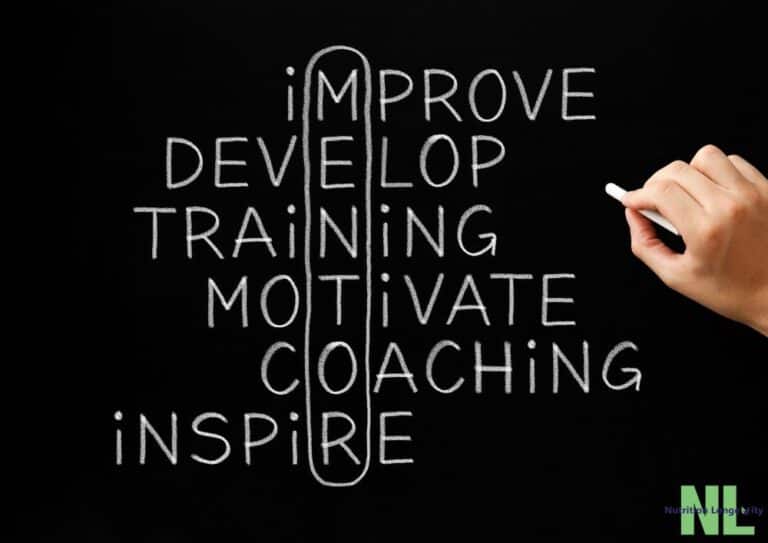What Is A Nutrition Coach?

What Is A Nutrition Coach: Complete Guide!
What is a nutrition coach? A nutrition coach is a professional who provides personalised guidance and support to help individuals improve their dietary habits and overall health. Unlike clinical nutritionists who often work in medical settings and focus on managing specific medical conditions through diet, nutrition coaches work holistically to address lifestyle, preferences, and long-term wellness goals. They create customised nutrition plans, offer motivation, and provide ongoing accountability to help clients make sustainable changes. Jake Biggs, a leading online and face-to-face nutrition coach, specialises in empowering clients to achieve their health goals through expert coaching and tailored nutrition strategies. Jake Biggs provides you the complete expert guide as to what is a nutrition coach.
Your complete guide to what is a nutrition coach! What you will learn:

What is a Nutrition Coach?
What is a nutrition coach? A nutrition coach is a professional who provides personalised guidance and support to help individuals improve their dietary habits and overall health. Unlike dietitians who often focus on clinical nutrition and work in medical settings to manage specific health conditions, nutrition coaches take a more holistic approach. They consider various aspects of an individual’s life, including lifestyle, preferences, and long-term health goals, to create comprehensive and sustainable nutrition strategies.
Nutrition coaches work closely with their clients to understand their unique needs, challenges, and objectives. They create customised nutrition plans tailored to each client’s specific circumstances, ensuring that these plans are practical, enjoyable, and sustainable over the long term. These plans often include meal planning, grocery shopping tips, and strategies for dining out, all designed to fit seamlessly into the client’s daily life.
In addition to providing dietary recommendations, nutrition coaches offer ongoing support and motivation, which are crucial for making lasting changes. They help clients set realistic goals, track progress, and adjust their plans as needed. This continuous support and accountability ensure that clients stay on track and remain motivated throughout their health journey.
Furthermore, nutrition coaches educate their clients about the principles of healthy eating and the impact of nutrition on overall well-being. This education empowers clients to make informed choices and develop a better understanding of how different foods affect their bodies and health. By addressing not just what their clients eat but also how and why they eat, nutrition coaches help individuals build healthier relationships with food and adopt lifelong healthy habits.

What does a Nutrition Coach do?
A nutrition coach plays a pivotal role in guiding individuals toward healthier dietary habits and overall wellness. Their work goes beyond mere dietary advice, encompassing a range of services tailored to meet the unique needs of each client.
Personalised Nutrition Plans: One of the primary responsibilities of a nutrition coach is to create personalised nutrition plans. These plans are designed based on a thorough understanding of the client’s lifestyle, preferences, health goals, and any existing medical conditions. The goal is to provide a practical, enjoyable, and sustainable eating plan that aligns with the client’s everyday life. This might include specific meal recommendations, portion sizes, and balanced nutrient intake to ensure optimal health.
Behavioural Guidance and Habit Formation: Nutrition coaches also focus on the psychological aspects of eating. They help clients identify and understand their eating behaviors, including triggers for unhealthy eating patterns such as stress or emotional eating. Through this understanding, a nutrition coach can assist clients in developing healthier eating habits and behaviors. This might involve strategies to manage cravings, mindful eating techniques, and other behavioural modifications that support long-term change.
Education and Empowerment: A significant part of a nutrition coach’s role is to educate clients about nutrition and its impact on overall health. They provide insights into how different foods affect the body, the importance of macronutrients and micronutrients, and how to read and understand food labels. This education empowers clients to make informed choices about their diet and lifestyle, fostering a deeper understanding of nutrition’s role in maintaining health and preventing disease.
Ongoing Support and Accountability: Making lasting dietary changes can be challenging, and a nutrition coach provides the ongoing support and accountability needed to stay on track. Regular check-ins, whether in person, online, or over the phone, help monitor progress and make necessary adjustments to the nutrition plan. This continuous support ensures that clients remain motivated and committed to their health goals.

Customised Recommendations for Specific Goals: Nutrition coaches tailor their advice to help clients achieve specific health goals. Whether the goal is weight loss, muscle gain, improved athletic performance, or managing a chronic condition, a nutrition coach designs a plan that aligns with these objectives. They may also provide specialised guidance for different life stages and circumstances, such as pregnancy, menopause, or managing age-related health concerns.
Grocery Shopping and Meal Preparation Guidance: Practical advice on grocery shopping and meal preparation is another essential service provided by nutrition coaches. They can teach clients how to plan meals, create shopping lists, and choose healthy ingredients. This guidance makes it easier for clients to implement their nutrition plans in their daily lives and ensures they are prepared to make healthy choices.
Motivation and Emotional Support: Embarking on a health journey can be daunting, and a nutrition coach offers much-needed motivation and emotional support. They celebrate successes, help clients overcome setbacks, and provide encouragement every step of the way. This supportive relationship is crucial for maintaining long-term commitment and achieving lasting results.
Monitoring and Adjusting Plans: As clients progress, their needs and goals may evolve. A nutrition coach continuously monitors their clients’ progress and adjusts their plans as necessary. This flexibility ensures that the nutrition strategies remain effective and relevant, helping clients to continue advancing toward their health objectives.

What is the role of a Nutrition Coach?
A nutrition coach plays a vital role in helping individuals achieve their health and wellness goals through personalised dietary guidance and support.
Individualised Nutrition Plans: Assess clients’ dietary habits, health status, and nutritional needs.
Develop customised meal plans that align with clients’ goals, whether it’s weight loss, muscle gain, managing a medical condition, or improving overall health.
Educational Support: Provide clients with information about nutrition, healthy eating habits, and the importance of various nutrients. Teach clients how to read food labels, make healthier food choices, and understand portion sizes.
Behavioural Coaching: Assist clients in setting realistic and achievable dietary goals. Offer strategies for overcoming barriers to healthy eating, such as emotional eating, cravings, or lack of time.
Motivation and Accountability: Encourage and support clients through regular check-ins and progress tracking. Help clients stay motivated and accountable to their dietary goals.

Lifestyle Integration: Integrate nutrition advice with clients’ lifestyle, considering factors like work schedule, family commitments, and personal preferences. Suggest practical tips for meal planning, grocery shopping, and dining out.
Monitoring and Adjusting Plans: Track clients’ progress and make necessary adjustments to their nutrition plans based on their feedback and results. Use tools like food diaries, apps, and progress charts to monitor adherence and outcomes.
Collaboration with Healthcare Professionals: Work in conjunction with dietitians, doctors, and other healthcare providers when necessary, especially for clients with specific medical conditions. Refer clients to specialists if they need more advanced medical nutrition therapy.
Staying Updated: Keep up-to-date with the latest nutrition research and guidelines to provide evidence-based recommendations. Attend continuing education courses and obtain relevant certifications.

What is the difference between a Clinical Nutritionist and Nutrition Coach?
The roles of a clinical nutritionist and a nutrition coach differ in several key aspects, including their education, scope of practice, and the types of clients they typically serve.
Clinical Nutritionist
Education and Credentials: Clinical nutritionists typically have advanced degrees in nutrition, dietetics, or related fields. This often includes a Bachelor’s degree at a minimum, and many have Master’s degrees or higher. They are often required to be licensed or certified, depending on the country or state regulations. Their education includes extensive coursework in medical nutrition therapy, biochemistry, physiology, and clinical practice.
Scope of Practice: Clinical nutritionists are trained to work in healthcare settings such as health care practices and clinics. They provide medical nutrition therapy (MNT) to manage and treat various health conditions such as diabetes, heart disease, kidney disease, gastrointestinal disorders, and more. They often work as part of a healthcare team, collaborating with doctors, nurses, and other healthcare professionals to develop and implement nutritional plans for patients. Clinical nutritionists can diagnose nutritional problems and prescribe dietary interventions as part of a treatment plan for patients with specific medical needs.
Clientele: Their clients are often individuals with specific medical conditions that require specialised dietary management. They may also work with patients who need nutritional support due to surgeries, chronic illnesses, or other health issues.

Nutrition Coach
Education and Credentials: Nutrition coaches may have various levels of education, ranging from certifications from nutrition coaching programs to degrees in nutrition, health, or wellness. While they can be certified through programs offered by organizations like the National Academy of Sports Medicine (NASM) or Precision Nutrition, they typically do not require the same level of formal education or licensing as clinical nutritionists. Their training focuses on practical nutrition guidance, behavioural change techniques, and motivational strategies.
Scope of Practice: Nutrition coaches provide general dietary advice and support to help clients achieve health and wellness goals, such as weight loss, improved fitness, or healthier eating habits. They are not qualified to diagnose medical conditions or prescribe specific diets for disease management. Instead, they focus on educating clients about healthy eating and helping them make sustainable lifestyle changes. They often work independently or in settings such as gyms, wellness centers, or private practice.
Clientele: Their clients are usually healthy individuals or those with non-medical nutrition concerns, such as wanting to lose weight, build muscle, improve athletic performance, or enhance overall well-being. They may also support individuals who are looking to prevent health issues through better nutrition but do not have specific medical conditions that require detailed medical nutrition therapy.

What are the benefits of a Nutrition Coach?
A nutrition coach offers numerous benefits for individuals seeking to enhance their health and well-being. One of the primary advantages is personalised guidance. Nutrition coaches create tailored nutrition plans that take into account each client’s unique needs, preferences, and goals. This customised approach ensures that dietary recommendations are practical, enjoyable, and sustainable for the individual.
Moreover, nutrition coaches play a pivotal role in behavior modification. They help clients identify and modify unhealthy eating behaviours by employing various behavioural strategies and providing ongoing support. Through this process, clients develop healthier habits, such as mindful eating and stress management, which contribute to long-term success in achieving their health objectives.
Consistent accountability is another key benefit provided by nutrition coaches. Regular check-ins, progress tracking, and adjustments to the nutrition plan help clients stay motivated and committed to their health journey. This ongoing support ensures that clients remain on track towards their goals, even when faced with challenges or setbacks.
Education and empowerment are integral aspects of the nutrition coaching process. Nutrition coaches empower clients with knowledge about nutrition, teaching them about the benefits of different foods, how to read food labels, and the importance of balanced eating. This education enables clients to make informed choices and take control of their health, fostering a sense of empowerment and self-confidence.

Furthermore, nutrition coaches offer goal-specific guidance tailored to individual needs. Whether the goal is weight loss, improved athletic performance, or managing a chronic condition, nutrition coaches provide specialised recommendations to maximise effectiveness and enhance outcomes. This targeted approach ensures that clients receive the support and guidance needed to achieve their health objectives.
Furthermore, nutrition coaches offer goal-specific guidance tailored to individual needs. Whether the goal is weight loss, improved athletic performance, or managing a chronic condition, nutrition coaches provide specialised recommendations to maximise effectiveness and enhance outcomes. This targeted approach ensures that clients receive the support and guidance needed to achieve their health objectives.
Practical life integration is another advantage of working with a nutrition coach. Nutrition coaches provide practical advice on integrating healthy eating habits into daily life, including meal planning, grocery shopping tips, and strategies for dining out. This real-life application helps clients make nutritious choices in various settings, facilitating long-term adherence to healthier eating habits.
Lastly, nutrition coaches offer motivation and emotional support throughout the journey. Through encouragement and positive reinforcement, nutrition coaches help clients stay motivated and resilient, even during challenging times. Building confidence and self-belief is essential for sustaining progress and achieving lasting health improvements.
Embracing the transformative power of Nutrition Coaching
In the dynamic world of nutrition coaching, Jake Biggs stands as a beacon of expertise, guiding individuals towards their health and wellness goals with precision and care. Just as he has revolutionised sports nutrition, Jake’s approach to nutrition coaching transcends the ordinary, empowering clients to embrace their full potential and achieve lasting well-being. With a blend of personalised guidance, cutting-edge research, and advocacy for nutritional education, Jake Biggs embodies the transformative power of nutrition coaching.
Personalised Nutrition for Optimal Health: Jake understands that every individual has unique nutritional needs and goals. Through personalised nutrition coaching, he tailors strategies to fit each client’s lifestyle, preferences, and objectives. Whether it’s weight management, improved energy levels, or overall wellness, Jake’s approach goes beyond generic advice, providing clients with practical and sustainable solutions for long-term success.
Integrating Science and Innovation: As a pioneer in the field, Jake seamlessly integrates the latest scientific research and technological innovations into his coaching practice. By staying at the forefront of advancements in nutrition science, including areas like nutrigenomics and metabolic profiling, Jake ensures that his clients receive evidence-based guidance that delivers tangible results. With the aid of modern tools and technology, such as wearable devices and telehealth platforms, he provides continuous support and monitoring to optimize outcomes.

Advocacy for Nutritional Awareness: Beyond individual coaching sessions, Jake is a passionate advocate for nutritional awareness and education. He believes that everyone deserves access to reliable nutrition information and resources to make informed choices about their health. Through his advocacy efforts, Jake works to promote nutritional literacy and encourage policy changes that prioritise wellness in communities and institutions.
Embracing a Future of Well-being: In the transformative journey of nutrition coaching, individuals discover the profound impact of food on their health and vitality. Guided by Jake Biggs’ expertise and compassionate approach, clients embark on a path of self-discovery and empowerment, unlocking their innate potential for well-being. Together, they embrace the transformative power of nutrition, forging a future where health, resilience, and vitality are within reach for all.











